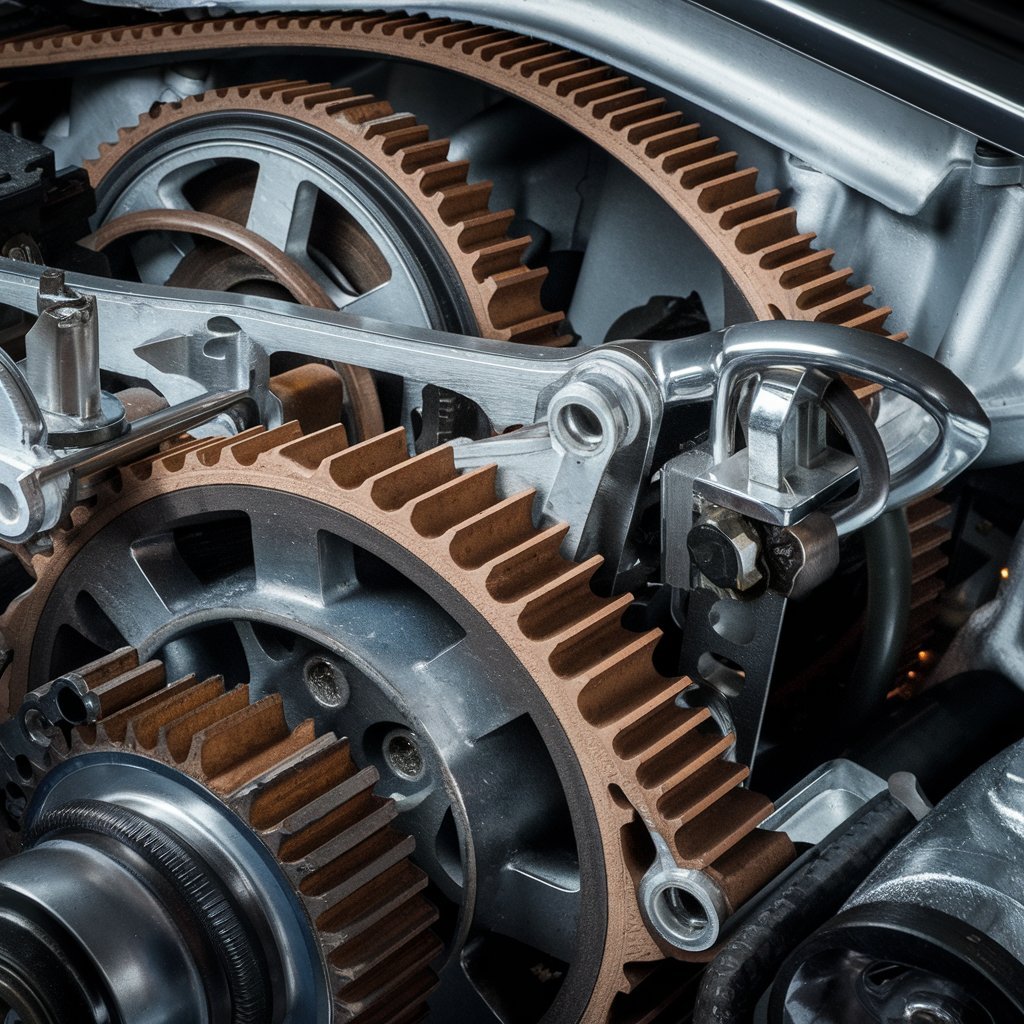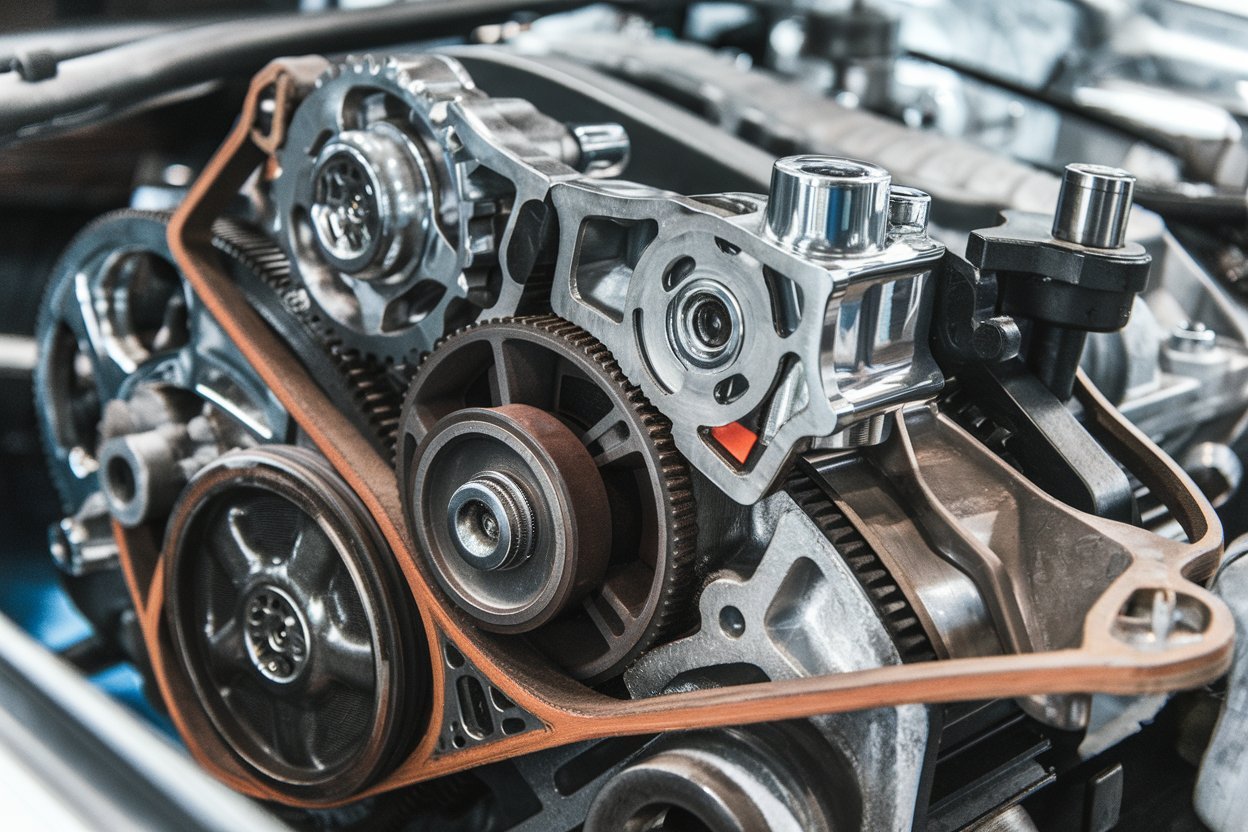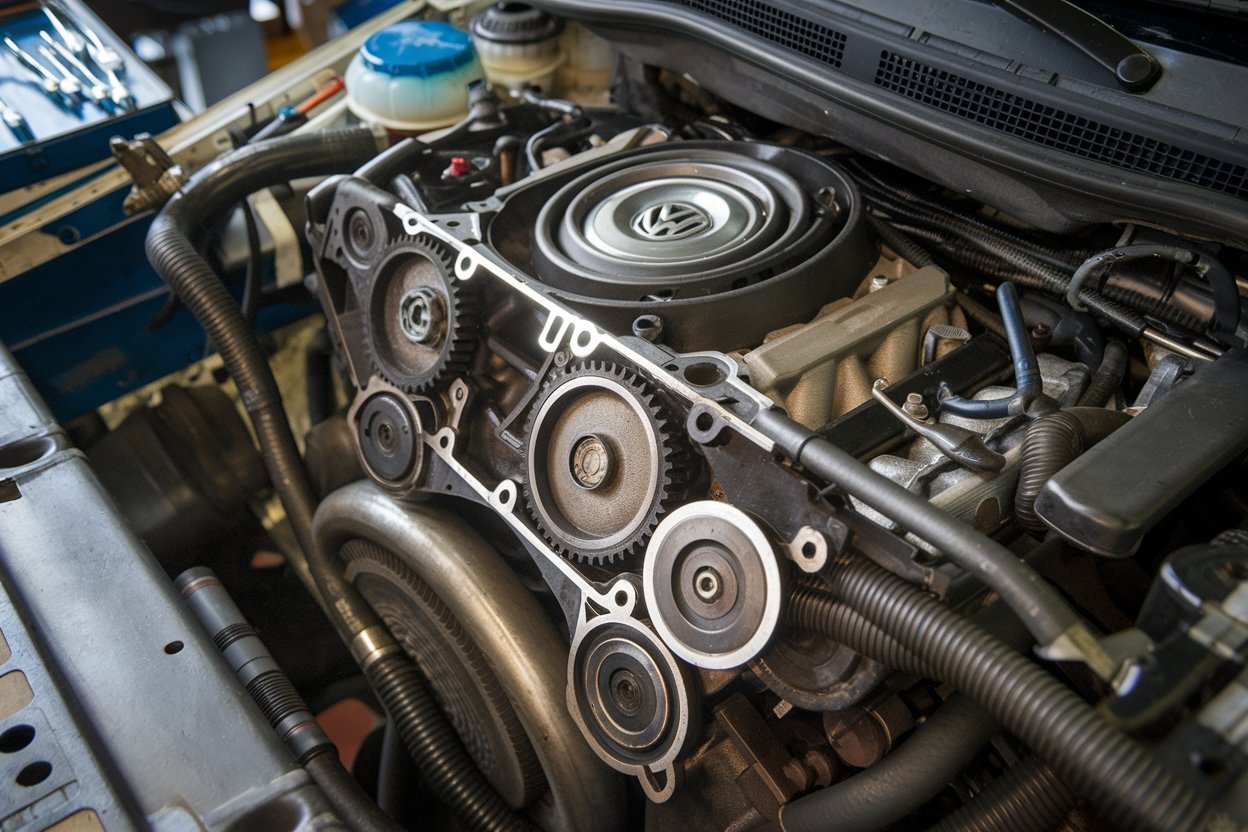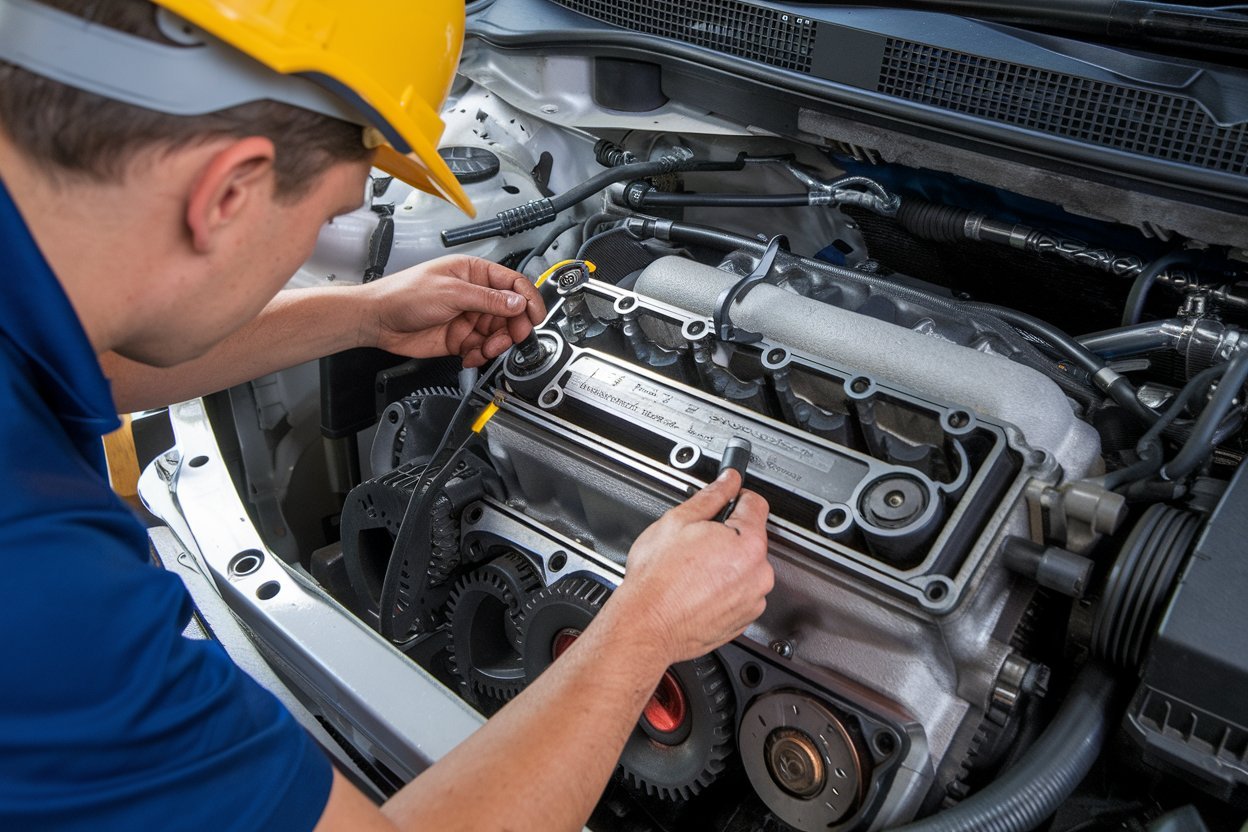Is Your VW Golf Timing Belt About to Snap? Imagine driving your Volkswagen Golf, and suddenly, the engine stalls. No warning. No chance to pull over safely. That’s what happens when a timing belt breaks. The worst part? It can destroy your engine, leading to repair bills worth thousands.
Don’t wait for disaster. If you suspect an issue, it’s time to act fast.

Your VW Golf timing belt plays a crucial role in keeping your engine running smoothly. It synchronizes the movement of the camshaft and crankshaft, ensuring that the engine’s valves open and close at precise moments. This synchronization is essential for proper fuel combustion and efficient engine performance.
If the timing belt fails, the results can be catastrophic:
Ignoring the timing belt is never an option. Replacing it on time is the best way to protect your VW Golf’s engine and avoid unnecessary repair bills.
A failing timing belt rarely gives clear warnings before it breaks. However, there are some early indicators you should never ignore.
Warning Sign | What It Means |
Ticking noise from the engine | The timing belt is losing tension or wearing out, which can lead to failure. |
Rough idling or misfires | The belt is slipping, causing improper valve timing and performance issues. |
Oil leaking from the front of the engine | A leak near the timing cover may indicate a failing belt or a worn-out tensioner. |
Check Engine Light | Timing issues can trigger the engine control unit (ECU) to alert you of a potential problem. |
High mileage (90,000 – 100,000 km) | The belt is nearing the manufacturer’s recommended replacement interval and should be changed. |
If you notice any of these signs, don’t delay. A timing belt failure can cause your engine to stop suddenly, leaving you stranded and facing a major repair bill.
Replacing your VW Golf’s timing belt on time offers several advantages that go beyond just avoiding breakdowns:
✅ No unexpected breakdowns – A snapped belt can cause sudden engine failure, leaving you stranded. Replacing it in advance eliminates this risk.
✅ Lower repair costs – If the belt fails, valve and piston damage can cost thousands to repair. A timely replacement prevents such damage.
✅ Better engine efficiency – A properly functioning timing belt ensures that your engine operates at peak performance, improving fuel efficiency.
✅ Increased resale value – If you plan to sell your Volkswagen Golf, a documented timing belt replacement can boost buyer confidence and value.
✅ Smoother engine operation – New belts ensure precise timing, reducing engine vibration and improving overall performance.
Delaying your timing belt replacement is a major gamble. By replacing it on time, you’re safeguarding your engine’s health and saving yourself from costly repairs down the road.


Volkswagen recommends replacing the timing belt every 90,000 to 100,000 km, depending on the model and engine variant. However, the actual replacement interval can vary based on:
It’s always best to check your owner’s manual or consult a specialist for precise recommendations based on your Volkswagen Golf’s specific engine type. Ignoring replacement intervals can cost you thousands in repairs.
Choosing the right timing belt is essential for your VW Golf’s engine performance and longevity. Here’s a comparison of OEM vs. aftermarket options:
Feature | OEM Timing Belt | Aftermarket Timing Belt |
Quality | Factory-tested and specifically designed for VW engines | Varies by brand and manufacturer |
Durability | Engineered for long lifespan and optimal performance | May wear out faster depending on quality |
Price | Slightly more expensive but offers better longevity | More affordable, but may require more frequent replacements |
Compatibility | Perfect fit, designed for Volkswagen Golf engines | May require modifications or adjustments |

✔️ Exact Fit & Precision Engineering: OEM timing belts are designed specifically for your VW Golf’s engine, ensuring a perfect fit and optimal performance.
✔️ Longer Lifespan & Reliability: OEM belts are built with high-quality materials, making them more durable than aftermarket alternatives.
✔️ Manufacturer-Approved Performance: Using an OEM belt ensures that your engine operates according to Volkswagen’s specifications, reducing wear on other components.
✔️ Avoids Compatibility Issues: Aftermarket belts vary in quality and may require modifications to fit properly. This can lead to premature failure or improper tensioning.
While aftermarket timing belts can be a more affordable option, their quality varies significantly. Some reputable aftermarket brands may offer decent performance, but cheap, low-quality belts can fail prematurely, putting your engine at risk.
For VW Golf timing belt replacement, we strongly recommend OEM belts for maximum durability and performance. Your engine deserves the best protection possible—and cutting corners on a crucial component like the timing belt is never worth the risk.
When it comes to timing belt replacement, precision is everything. A single misstep can throw your engine’s timing off, leading to rough idling, poor fuel economy, or even catastrophic engine damage. That’s why our process is meticulously designed for flawless results every time.

Investing in a timing belt replacement isn’t just about keeping your engine running – it’s about preventing catastrophic engine failure. The cost varies depending on the service level you choose:
Service | Estimated Cost |
Timing Belt Replacement | AED 1,200 – AED 2,500 |
Timing Belt + Water Pump | AED 1,800 – AED 3,500 |
Full Timing Kit Replacement | AED 2,500 – AED 4,500 |
💡 Why replace the water pump? It’s driven by the timing belt, and if it fails later, you’ll need to redo the entire job. Better to replace it now and save money in the long run!
Several factors influence the final price – and knowing them helps you make an informed decision:

We know that car repairs can feel like a financial burden, but ignoring a worn-out timing belt can cost you far more in the long run. That’s why we offer:
✔️ Competitive pricing without compromising on quality.
✔️ OEM and high-quality aftermarket options to fit different budgets.
✔️ Flexible payment plans to make the service more accessible.
💡 A snapped timing belt can destroy your engine. It’s not a risk worth taking. Book your service today and drive worry-free!
There’s a reason why VW owners trust us with their timing belt replacements. We go beyond just swapping out parts – we ensure your Golf runs smoothly for years to come.
🛠️ Certified VW Specialists – We’ve worked on hundreds of VW Golfs and know their engines inside out.
🔧 OEM-Approved Parts – No cheap imitations. Only high-quality components for reliability.
⏱️ Quick Turnaround – Most jobs are completed within the same day so you’re back on the road fast.
🏆 5-Star Customer Reviews – Our customers love our honesty, expertise, and top-notch service.
💰 Affordable Pricing – We offer fair rates with no hidden fees or surprise costs.
💡 Your VW Golf deserves expert care. And so do you. Let’s keep your engine running like new!


A customer brought in his 2015 VW Golf, complaining of rough idling and a slight ticking noise. After inspection, we found the timing belt was severely worn, on the verge of snapping.
✅ Result: The Golf ran like new, and we saved the owner from a $5,000+ engine rebuild!
Book a Call Back Now
Waiting too long can lead to catastrophic engine failure. Schedule your Volkswagen Golf timing belt service today and drive worry-free!
📅 Book an appointment now! Call us Now.
